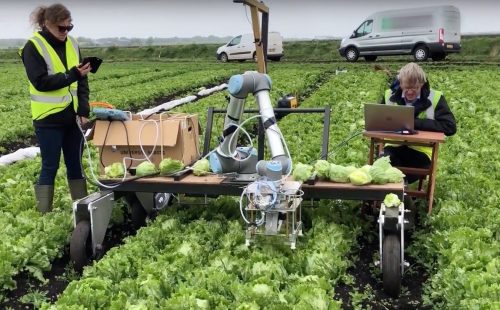
Agriculture-based SMEs need to adopt advanced technology and automation solutions to further foster growth in Malaysia’s agricultural sector.
In Asean countries, the agricultural sector contribution to the GDP ranged from 0.03 per cent (Singapore) to 22.8 per cent (Myanmar and Cambodia). Malaysia was ranked eighth with 7.4% to its GDP in 2020.
Due to the Covid-19 pandemic, Malaysia recorded a decrease in the production of major commodity crops in 2020. In addition, ageing farmers, rural-urban migration, and the 3D (dirty, dangerous, and demeaning) perception of the agricultural jobs, has led to a labour shortage.
The shortage of capital investment in Malaysia’s agriculture sector means that smallholder farming companies which do not have adequate funding, will not be able to purchase automated hardware such as robotic harvester, which could help combat the labour shortage, said Universal Robots (UR), Denmark-based collaborative robots (cobots) manufacturer.
“To local farmers, automation may mean traditional industrial robots, which are expensive to purchase, inflexible, space-hogging, and often require robotic engineers for programming and maintenance. However, there are robots that are more adaptable to urban farming purposes.

“Cobots are versatile and flexible, are designed to work alongside human workers, and can relieve repetitive tasks such as manual pollination so that humans can take on better roles that tap on cognitive and social abilities. Already, farmers and food producers are reaping the benefits of cobots to increase productivity and efficiency in many locales,” said James McKew, UR Regional Director of Asia-Pacific.
In 2021, there were intermittent and severe cases of agri-food supply chain disruptions in Asean countries including Malaysia. The government has since doubled its efforts to aid the agricultural sector, giving subsidies amounting to RM1.7 billion while another RM1.8 billion will be provided for micro financing programmes including the SME Techno Entrepreneur Incentive Program to increase crop production and food processing through the application of technology.
Under the current 12th Malaysia Plan (12MP), Malaysia’s agriculture sector will be intensified using smart technologies to increase productivity and strengthen national food security which include adopting high-tech agricultural methods, including big data analysis, artificial intelligence, and precision equipment, such as drones, robotics and sensors.
The sector is projected to grow by 3.8 per cent per annum during 12MP and contribute 7% to the GDP in 2025.
Illustrating how UR’s technology has contributed to agritech development in the region, McKew said Augmentus, an AI-robotics software and a systems integration partner for UR, has worked together with Singrow, a Singapore-based agri-tech company, to automate pollination and harvesting in the latter’s strawberry farming project.
“Singrow needed something that would alleviate human errors and improve productivity. They came to know about UR3 cobot, adapted with a camera that would identify flowers using Augmentus’ integrated AI technology for effective pollination once the on-board camera identifies the flowers. The UR3 cobot is also programmed to pick out ripe strawberries,” he added.
In the past, growing temperate produce such as strawberries in tropical countries like Malaysia is almost unthinkable but it’s now possible with the help of advanced technology in a controlled environment.
“Cobots have made dramatic inroads for these processes, giving agriculture the advantages of optimised production and the opportunity to free human workers for more meaningful tasks. UR ensures that farmers need not worry about the unintuitive programming of robots since cobots are easy to implement, operate and maintain,” McKew said.














